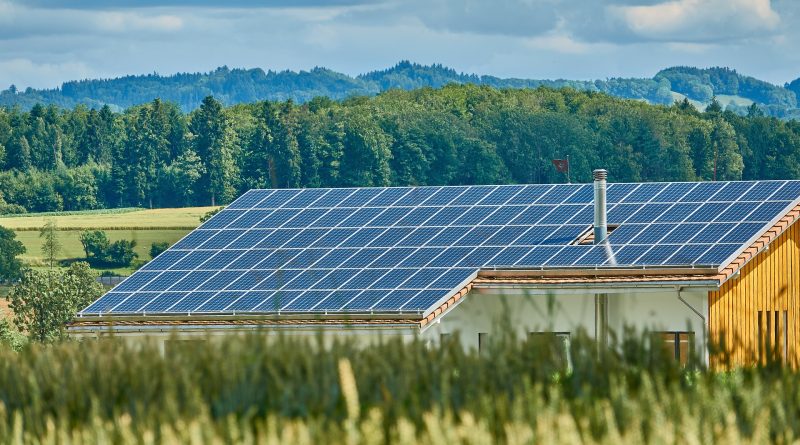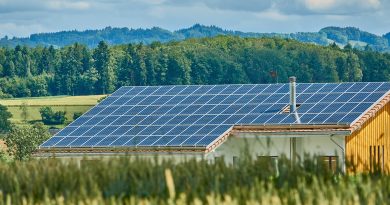Explore Off-Grid Solar Power
Off-grid solar power has emerged as a sustainable and cost-effective solution for meeting energy needs in remote areas away from traditional sources of electricity. This technology harnesses the power of the sun to generate electricity without relying on the traditional power grid. In this blog, we will delve into the intricacies of off-grid solar power, exploring its benefits, components, and applications.
Table of Contents
What is off-grid solar power?
Off-grid solar power refers to a system that operates independently of the electrical grid, providing electricity in areas where there is no access to centralized power sources. This technology captures sunlight through photovoltaic (PV) panels, converting it into usable electrical energy through a series of components such as charge controllers, batteries, and inverters.
The components of off-grid solar power systems
Off-grid solar power systems comprise several essential components that work together to convert sunlight into electricity. These components include PV panels, charge controllers, batteries, inverters, and backup generators.
PV panels: These panels consist of multiple solar cells that capture sunlight and convert it into direct current (DC) electricity. They are typically mounted on rooftops or on the ground to maximize exposure to sunlight.
Charge controllers: Also known as charge regulators, these devices regulate the amount of current flowing into the batteries to prevent overcharging or damage. They ensure that the batteries are charged optimally and efficiently.
Batteries: The energy generated by the PV panels is stored in batteries for use during periods of low sunlight or at night. The batteries provide a continuous power supply, serving as a reliable backup source.
Inverters: Off-grid solar power systems use inverters to convert DC electricity from the batteries into alternating current (AC) electricity, which is the standard form of electricity used in most households and appliances.
Backup generators: In some cases, backup generators are installed as an additional power source for situations when power demand exceeds the capacity of the solar panels or batteries, such as during extended periods of low sunlight or high energy consumption.
The benefits of off-grid solar power
Off-grid solar power offers numerous advantages that make it an appealing choice for those living in remote areas. Some of the key benefits include:
1. Energy independence: Off-grid solar power systems provide complete energy autonomy, allowing individuals or communities to generate their electricity independently. This independence reduces reliance on traditional power grids and their associated costs.
2. Environmental sustainability: By harnessing the sun’s energy, off-grid solar power systems generate clean and renewable electricity, significantly reducing carbon emissions and environmental pollution. This clean energy alternative helps combat climate change and conserve natural resources.
3. Cost-effectiveness: Despite the initial investment required for installing an off-grid solar power system, it offers considerable long-term savings. Once installed, the system provides free electricity, eliminating monthly electricity bills and reducing dependence on expensive fossil fuels.
4. Reducing energy poverty: Off-grid solar power has the potential to uplift underserved rural communities by providing reliable access to electricity. This technology enables improved healthcare services, education, communication, and economic opportunities, ultimately reducing energy poverty.
5. Versatility and scalability: Off-grid solar power systems are highly versatile and scalable, catering to a wide range of energy needs. They can be customized and expanded to meet specific requirements, making them suitable for various applications, from powering small residences to larger commercial buildings and industrial sites.
Applications of off-grid solar power
Off-grid solar power finds numerous applications in diverse sectors, contributing to the well-being of the communities that benefit from it. Some of the key applications include:
1. Rural electrification: Off-grid solar power has transformed the lives of millions of people in remote areas by providing much-needed electricity for lighting, cooking, and powering appliances, improving living conditions and overall quality of life.
2. Telecommunications: Off-grid solar power systems are widely used to power telecommunication towers and equipment, ensuring uninterrupted connectivity in remote areas where establishing conventional electrical infrastructure is impractical.
3. Water pumping and irrigation: Solar-powered water pumps are extensively used for irrigation in agricultural fields and for supplying clean drinking water in areas without access to traditional water sources or electricity.
4. Emergency response and disaster relief: Off-grid solar power systems play a crucial role in emergency response efforts and disaster-stricken areas, providing immediate access to electricity for lighting, communication, and medical services.
5. Recreational vehicles and remote cabins: Off-grid solar power enables individuals and families living in recreational vehicles or remote cabins to have access to electricity for lighting, cooking, and powering appliances, enhancing their comfort and convenience in isolated areas.
Conclusion
Embark on a journey to energy independence with off-grid solar power from SolarClue®. Our experts demystify the process through insightful FAQs, guiding you through the world of standalone solar systems. Tailor your energy solution with components like solar panels, batteries, and inverters, ensuring a continuous power supply. Experience the freedom of off-grid living, suitable for remote locations or areas with unreliable grid access. SolarClue® offers scalable solutions, allowing you to expand or upgrade your system over time. Enjoy the advantages of reduced grid dependence and explore government incentives. Chart your path to sustainable energy—contact SolarClue® today.
Frequently Asked Questions
Off-grid solar power refers to a standalone system not connected to the utility grid that generates and stores its own electricity.
Off-grid systems operate independently, storing excess energy in batteries for use during periods of low or no sunlight.
Yes, when paired with energy storage solutions like batteries, off-grid systems can provide a continuous power supply.
Components include solar panels, charge controllers, inverters, batteries, and sometimes backup generators for extended periods without sunlight.
Assess your energy needs and usage patterns. SolarClue® experts can guide you in sizing an efficient off-grid system.
Yes, off-grid systems are versatile and can be deployed in remote areas or places with unreliable grid access.
Benefits include energy independence, reduced reliance on the grid, and the ability to power remote locations.
Yes, off-grid systems can be easily expanded by adding more solar panels or increasing battery capacity as energy needs grow.
Regular maintenance includes cleaning panels, checking connections, and monitoring battery health. SolarClue® provides maintenance guidance.
SolarClue® assists users in exploring available incentives, making off-grid solutions even more financially appealing.




